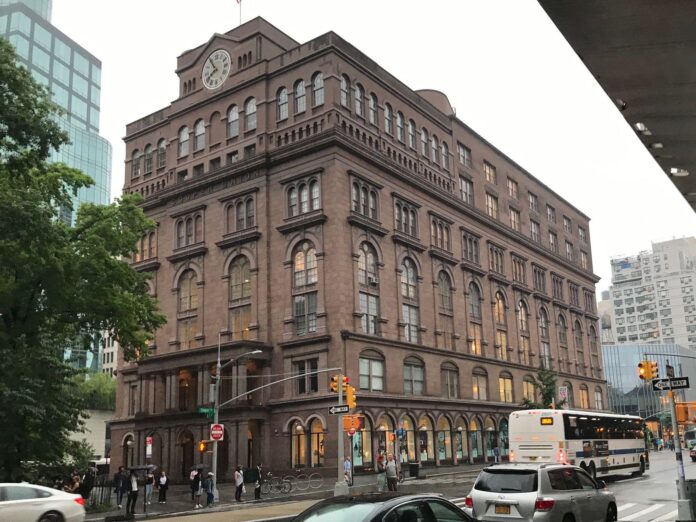The New York art, architecture and engineering school Cooper Union has postponed an exhibition highlighting the work of Vkhutemas, an architecture school often considered the Russian equivalent to the Bauhaus, which opened in 1920 before being shuttered by Joseph Stalin ten years later. The show, titled Vkhutemas: Laboratory of the Avant-Garde, was originally slated to open 25 January, but officials at the university made the decision to indefinitely postpone it as a result of the ongoing Russian invasion of Ukraine.
Hayley Eber, acting dean at the university’s school of architecture, said in a statement that the decision came as university officials “seek to balance, with accuracy and sensitivity, the scholarly study of architectural history amidst the current atrocities being exacted on the people of Ukraine by the Russian government”, adding, “we have made the decision to postpone the opening of the exhibition to provide us with the time and space to fully consider these concerns and to make an informed decision on moving forward”.
An open letter criticising the school’s decision is circulating, framing the postponement as an example of the dangers of conflating a government’s actions with those of the artists and architects native to that country. Vkhutemas faculty included key 20th-century art historical figures from the region, including Kazimir Malevich, Aleksandr Rodchenko and El Lissitzky.
“We stand in full solidarity with the people of Ukraine and all those who oppose Russia’s unjustified and brutal invasion,” reads the letter. “To conflate the work of an architectural school based in Moscow a century ago (and shut down after just one decade in a wave of cultural and political suppression) with the actions of the Russian regime today, however, represents both a profound misunderstanding of the history of Vkhutemas and a troubling instance of censorship and historical erasure.”
As of this writing, the letter has been signed by 750 individuals, including art historians Claire Bishop, Yve-Alain Bois, Hal Foster, David Joselit, Rosalind Krauss and Joachim Pissarro; architect Rem Koolhaas; artists Alfredo Jaar, Amy Sillman and Oscar Tuazon; Flavin Judd of the Judd Foundation and others.
The open letter also asserts that the “eleventh-hour postponement” may have been informed by an op-ed written by New York University professor Peder Anker, which appeared in Archinet on 21 January and asserted that “the Cooper Union should terminate this exhibition and put a pause on its courses on Soviet and Russian architecture”. Anker added, “even though the scholarly work behind the exhibit is solid, it serves in the current cultural politics as Russian propaganda. With the war raging, why would The Cooper Union agree to support this now publicly?”
Though the open letter suggests the op-ed may have been a deciding factor in Cooper Union’s decision to postpone the show, no university spokesperson has cited it as such and Eber made no mention of it in her statement.

























